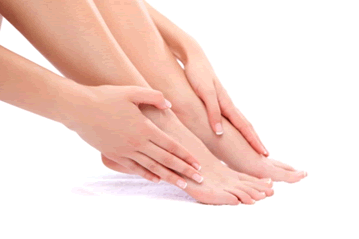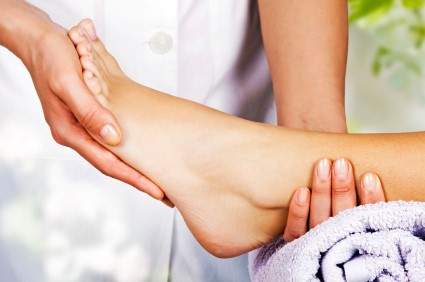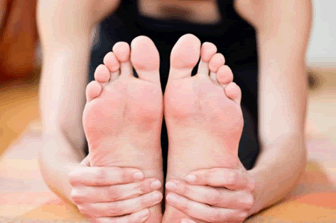Items filtered by date: November 2015
University Students donate Shoes to over 300 Children
 Student athletes from the University of Central Arkansas shoes to over 300 Conway children through the international project Shoes of Hope. The project aims to bring children together by washing their feet and then giving them a new pair of shoes. For this event, the University’s athletes raised over $5,000. Graham Gibbs of Samaritan’s Feet shared, “60 percent of kids K through 12 in Arkansas are either on or eligible for free and reduced lunches. So that’s a demographic stat that we use to gauge need. If they’re needing food, they’re needing clothes, they’re needing shoes.”
Student athletes from the University of Central Arkansas shoes to over 300 Conway children through the international project Shoes of Hope. The project aims to bring children together by washing their feet and then giving them a new pair of shoes. For this event, the University’s athletes raised over $5,000. Graham Gibbs of Samaritan’s Feet shared, “60 percent of kids K through 12 in Arkansas are either on or eligible for free and reduced lunches. So that’s a demographic stat that we use to gauge need. If they’re needing food, they’re needing clothes, they’re needing shoes.”
Looking out for potential foot and ankle injuries as well as general health is vital in maintaining proper development in children’s feet. If you have any concerns contact Dr. Joshua David Scoll of Pennsylvania. Our doctorwill treat your foot and ankle needs.
Keeping Children's Feet Healthy
Having healthy feet in childhood can help prevent medical problems later in life, namely in the back and legs. As children grow, their feet require different types of care from birth to school-age.
Although babies do not walk yet, it is still very important to take care of their feet.
- Avoid putting tight shoes or socks on his or her feet
- Allow the baby to stretch and kick his or her feet to feel comfortable
As a toddler, kids are now on the move and begin to develop differently. At this age toddlers are getting a feel for walking, so don’t be alarmed if your toddler is unsteady or ‘walks funny’. Be sure the child wears comfortable and protective shoes so that they can grow into their feet properly.
As your child gets older, it is important to teach them how to take care of their feet
- Show them proper hygiene to prevent infections such as fungus
- Be watchful of any pain or injury
- Have all injuries checked by a doctor as soon as possible
- Comfortable, protective shoes should always be worn, especially at play
Children of all ages are constantly developing and growing, and as a parent you want to make sure that nothing is hindering their maturation.
If you have any questions please feel free to contact our offices located in Philadelphia and Bensalem, PA. We offer the newest diagnostic tools and technology to treat your foot and ankle needs.
Preparing an Emergency Kit for Diabetic Patients Key to Good Health
 To ensure adequate care during emergency situations, diabetics should prepare an emergency kit that contains the necessary supplies, medications, and especially foods. Rebecca Ercums, Lifestyle Education Assistance Program Diabetes Health Educator, shares, “In your emergency kit, include foods that meet your dietary needs and help you maintain good blood sugar levels. Crackers; peanut butter; powdered milk; low sugar cereal; juice; hard candy or glucose tablets; canned tuna, salmon, and chicken; and nuts are good choices.”.
To ensure adequate care during emergency situations, diabetics should prepare an emergency kit that contains the necessary supplies, medications, and especially foods. Rebecca Ercums, Lifestyle Education Assistance Program Diabetes Health Educator, shares, “In your emergency kit, include foods that meet your dietary needs and help you maintain good blood sugar levels. Crackers; peanut butter; powdered milk; low sugar cereal; juice; hard candy or glucose tablets; canned tuna, salmon, and chicken; and nuts are good choices.”.
Diabetic foot care is important in preventing foot complications such as ulcers or amputation. If you are suffering from diabetes or have any other concerns about your feet, contact Dr. Joshua David Scoll of Pennsylvania. Our doctor will diagnose and treat your foot and ankle needs.
Diabetic Foot Care
Diabetes affects millions of people every year. Diabetes can damage blood vessels in many parts of the body, including the feet. Because of this, taking care of your feet is essential if you have diabetes, and having a podiatrist help monitor your foot health is highly recommended.
The Importance of Caring for Your Feet
- Routinely inspect your feet for bruises or sores.
- Wear socks that fit your feet comfortably.
- Wear comfortable shoes that provide adequate support.
Patients with diabetes should have their doctor monitor their blood levels because blood sugar levels play such a huge role in diabetic care. Monitoring these levels on a regular basis is highly advised.
It is always best to inform your healthcare professional of any concerns you may have regarding your feet, especially for diabetic patients. Early treatment and routine foot examinations are keys to maintaining proper health, especially because severe complications can arise if proper treatment is not applied.
If you have any questions please feel free to contact our offices located in Philadelphia and Bensalem, PA. We offer the newest diagnostic tools and technology to treat your foot and ankle needs.
Seahawks Lose Tharold Simon To Surgery
 Tharold Simon of the Seattle Seahawks may have to face surgery due to a dislocated toe. Due to the injury the running back has since been placed on the team reserve that essentially ends his season. Coach Pete Carroll stated, “His nature has given him a toe that’s got some issues and we’ve just got to work through it.” In the meantime, rookie Rod Smith will take Simon’s place.
Tharold Simon of the Seattle Seahawks may have to face surgery due to a dislocated toe. Due to the injury the running back has since been placed on the team reserve that essentially ends his season. Coach Pete Carroll stated, “His nature has given him a toe that’s got some issues and we’ve just got to work through it.” In the meantime, rookie Rod Smith will take Simon’s place.
Foot surgery is sometimes necessary to fix a foot ailment. If you have any concerns about your foot and ankle needs contact Dr. Joshua David Scoll of Pennsylvania. Our doctor will treat your foot and ankle needs.
When Is Surgery Necessary?
Foot and ankle surgery is generally reserved for cases in which less invasive, conservative procedures have failed to help with the problem. Some of the cases in which surgery may be necessary are:
- Removing foot deformities like bone spurs and bunions
- Severe arthritis that has caused bone issues
- Cosmetic reconstruction
What Types of Surgery Are There?
The type of surgery you receive will depend on the nature of the problem you have. Some of the possible surgeries include:
- Bunionectomy for painful bunions
- Surgical fusion for realignment of bones
- Neuropathy decompression surgery to treat nerve damage
Benefits of Surgery
Although surgery is usually a last resort, it can provide more complete pain relief compared to non-surgical methods and may allow you to finally resume full activity.
Surgical techniques have also become increasingly sophisticated. Techniques like endoscopic surgery allow for smaller incisions and faster recovery times.
If you have any questions please feel free to contact our offices located in Philadelphia and Bensalem, PA. We offer the newest diagnostic tools and technology to treat your foot and ankle needs.
Refugees in Hungary Suffering from Foot Ailments such as Corns
 The unfortunate refugee crisis taking place in Hungary has become very visible on each refugee’s feet. After walking for days on end in worn down shoes, corns and calluses have become the norm. By not having the ability to take care of their feet, massive corns and calluses and swollen and weathered soles are negatively affecting the overall health of these refugees. Fortunately, volunteer efforts are bringing positive progress in this crisis and will hopefully eventually lead to a swift resolution.
The unfortunate refugee crisis taking place in Hungary has become very visible on each refugee’s feet. After walking for days on end in worn down shoes, corns and calluses have become the norm. By not having the ability to take care of their feet, massive corns and calluses and swollen and weathered soles are negatively affecting the overall health of these refugees. Fortunately, volunteer efforts are bringing positive progress in this crisis and will hopefully eventually lead to a swift resolution.
Corns can be a huge nuisance for the feet. If you have any foot or ankle concerns contact Dr. Joshua David Scoll of Bensalem and Philadelphia, PA. Our doctors will attend to your foot and ankle needs.
Corns: What are they? And how do you get rid of them?
Corns can be described as areas of the skin that have thickened to the point of becoming painful or irritating. They are often layers and layers of the skin that have become dry and rough, and are normally smaller than calluses.
Ways to Prevent Corns
There are many ways to get rid of painful corns such as wearing:
- Well-fitting socks
- Comfortable shoes that are not tight around your foot
- Shoes that offer support
Treating Corns
Treatment of corns involves removing the dead skin that has built up in the specific area of the foot. Salicylic acid can help in getting rid of these corns because it dissolves keratin, which is the protein that makes up a good majority of corns. Podiatrists recommend that people with diabetes not use salicylic acid but should consult with their podiatrist regarding the treatment of corns.
If you have any questions feel free to contact our offices located in Philadelphia and Bensalem, PA. We offer the newest diagnostic tools and technologies to treat your foot and ankle needs.
Heavy Sports Involvement Can Result in Plantar Fasciitis
 Nearly 2 million people in the United States are affected by plantar fasciitis each year. While anyone can get plantar fasciitis, some say there has been an increase in recent years due to heavy sports involvement. Plantar fasciitis occurs when the band stretching from the toes to the heels and is often referred to as “heel pain syndrome.” While sports such as running seems to be a major cause of the condition, those that are often on their feet, athletes, and improper shoe wearers can all suffer. Pain from an overused fascia can go undetected for a long time until the band becomes so strained and inflamed.
Nearly 2 million people in the United States are affected by plantar fasciitis each year. While anyone can get plantar fasciitis, some say there has been an increase in recent years due to heavy sports involvement. Plantar fasciitis occurs when the band stretching from the toes to the heels and is often referred to as “heel pain syndrome.” While sports such as running seems to be a major cause of the condition, those that are often on their feet, athletes, and improper shoe wearers can all suffer. Pain from an overused fascia can go undetected for a long time until the band becomes so strained and inflamed.
Plantar fasciitis can be very painful and inconvenient. If you are experiencing heel pain or symptoms of plantar fasciitis, visit Dr. Joshua David Scoll of Pennsylvania. Our doctors can treat your heel pain as well as any other foot or ankle condition.
What is Plantar Fasciitis?
Plantar fasciitis is the inflammation of a the thick band of tissue that runs along the bottom of your foot, known as the plantar fascia, and causes mild to severe heel pain.
What Causes Plantar Fasciitis?
· Excessive running
· Non-supportive shoes
· Overpronation
· Repeated stretching and tearing of the plantar fascia
How Can It Be Treated?
· Conservative measures – anti-inflammatories, ice packs, stretching exercises, physical therapy, orthotic devices
· Shockwave therapy – sound waves are sent to the affected area to facilitate healing and are usually used for chronic cases of plantar fasciitis
· Surgery – usually only used as a last resort when all else fails. The plantar fascia can be surgically detached from the heel
While very treatable, plantar fasciitis is definitely not something that should be ignored. Especially in severe cases, speaking to your doctor right away is highly recommended to avoid complications and severe heel pain. Your podiatrist can work with you to provide the appropriate treatment options tailored to your condition.
If you have any questions, please contact our offices in Philadelphia and Bensalem, PA. We offer the newest diagnostic and treatment technologies for all your foot and ankle injuries.
